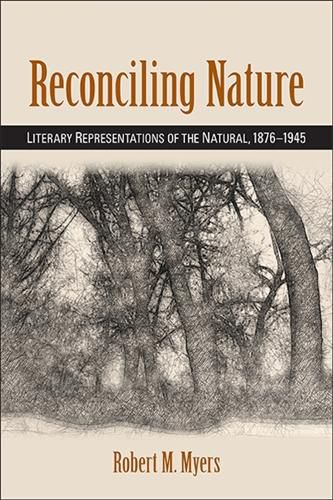Readings Newsletter
Become a Readings Member to make your shopping experience even easier.
Sign in or sign up for free!
You’re not far away from qualifying for FREE standard shipping within Australia
You’ve qualified for FREE standard shipping within Australia
The cart is loading…






Reconciling Nature maps the complex views of the environment that are evident in celebrated American novels written between the Centennial Celebration of 1876 and the end of the Second World War. During this period, which includes the Progressive era and the New Deal, Americans held three contradictory views of the natural world: a recognition of nature’s vulnerability to the changes brought by industrialism; a fear of the power of nature to destroy human civilization; and a desire to make nature useful. Robert M. Myers argues they reconciled these conflicting views through nature nostalgia, policing of wilderness areas, and through strategies of control borrowed from the social sciences. Myers combines environmental history with original readings of eight novels, producing fresh perspectives on Mark Twain’s Adventures of Huckleberry Finn, Stephen Crane’s Maggie, Kate Chopin’s The Awakening, Upton Sinclair’s The Jungle, Mary Austin’s The Ford, Theodore Dreiser’s An American Tragedy, Zora Neale Hurston’s Their Eyes Were Watching God, and William Faulkner’s Go Down, Moses. While previous ecocritical works have focused on proto-environmentalism in classic works of literature, Reconciling Nature explores the ambivalence within these texts, demonstrating how they reproduce views of nature as threatened, threatening, and useful. The epilogue examines the environmental ideologies associated with the development and deployment of the first atomic bomb.
$9.00 standard shipping within Australia
FREE standard shipping within Australia for orders over $100.00
Express & International shipping calculated at checkout
Reconciling Nature maps the complex views of the environment that are evident in celebrated American novels written between the Centennial Celebration of 1876 and the end of the Second World War. During this period, which includes the Progressive era and the New Deal, Americans held three contradictory views of the natural world: a recognition of nature’s vulnerability to the changes brought by industrialism; a fear of the power of nature to destroy human civilization; and a desire to make nature useful. Robert M. Myers argues they reconciled these conflicting views through nature nostalgia, policing of wilderness areas, and through strategies of control borrowed from the social sciences. Myers combines environmental history with original readings of eight novels, producing fresh perspectives on Mark Twain’s Adventures of Huckleberry Finn, Stephen Crane’s Maggie, Kate Chopin’s The Awakening, Upton Sinclair’s The Jungle, Mary Austin’s The Ford, Theodore Dreiser’s An American Tragedy, Zora Neale Hurston’s Their Eyes Were Watching God, and William Faulkner’s Go Down, Moses. While previous ecocritical works have focused on proto-environmentalism in classic works of literature, Reconciling Nature explores the ambivalence within these texts, demonstrating how they reproduce views of nature as threatened, threatening, and useful. The epilogue examines the environmental ideologies associated with the development and deployment of the first atomic bomb.